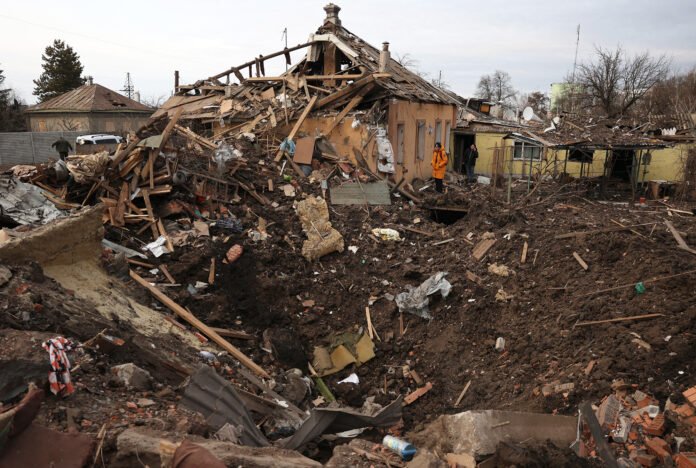
Transitioning from tensions to allegations, Ukraine claims that Russia has launched a staggering 24 missiles from North Korea thus far. Amid escalating geopolitical tensions, these claims have sparked concern and scrutiny from international observers, raising questions about the motives and implications of such actions.
Transitioning from allegations to responses, Russia has vehemently denied Ukraine’s claims, dismissing them as baseless and unfounded. Russian officials argue that they have no involvement in the launch of North Korean missiles and accuse Ukraine of spreading false information to sow discord and provoke further conflict.
Transitioning from responses to analysis, experts warn that the alleged missile launches could exacerbate an already volatile situation in the region. With tensions between Russia and Ukraine at an all-time high, any escalation of military activity, whether real or perceived, has the potential to spark a wider conflict with far-reaching consequences.
Transitioning from analysis to diplomatic efforts, international leaders have called for restraint and de-escalation in the face of mounting tensions. Diplomatic channels remain open, with calls for dialogue and negotiation to resolve differences and prevent further escalation of hostilities.
Transitioning from diplomatic efforts to regional implications, neighboring countries are closely monitoring the situation and taking precautions to ensure their security. South Korea, Japan, and other countries in the Asia-Pacific region have heightened their defenses and increased surveillance in response to the alleged missile launches from North Korea.
Transitioning from regional implications to global concerns, the alleged missile launches underscore the importance of maintaining stability and peace in the international community. With the potential for miscalculation and escalation, it is imperative for all parties involved to exercise restraint and engage in constructive dialogue to address underlying issues and prevent further conflict.
Talking about global concerns to historical context, tensions between Russia and Ukraine have simmered for years, with conflicts over territory, sovereignty, and geopolitical influence. The alleged missile launches from North Korea add another layer of complexity to an already fraught relationship, highlighting the need for diplomatic efforts to resolve underlying tensions and promote stability in the region.
Transitioning from historical context to future prospects, the path forward remains uncertain as the international community grapples with the fallout from the alleged missile launches. While diplomatic efforts continue, the risk of further escalation and conflict looms large, underscoring the need for all parties involved to prioritize dialogue, negotiation, and peaceful resolution of differences.
Transitioning from global concerns to historical context, tensions between Russia and Ukraine have a long and complex history dating back to the dissolution of the Soviet Union. The annexation of Crimea by Russia in 2014 and the ongoing conflict in eastern Ukraine have exacerbated these tensions, fueling mistrust and animosity between the two countries. The alleged missile launches from North Korea add another dimension to this already volatile relationship, raising questions about Russia’s intentions and Ukraine’s security concerns.
Moreover, the alleged missile launches highlight the challenges posed by North Korea’s provocative behavior and nuclear ambitions. Despite international efforts to curb its missile and nuclear programs, North Korea continues to test ballistic missiles and develop advanced weaponry, posing a threat to regional stability and global security. The alleged cooperation between Russia and North Korea in missile launches further complicates efforts to address the North Korean nuclear issue and underscores the need for a coordinated international response.
Transitioning from historical context to future prospects, the path forward remains uncertain as the international community grapples with the fallout from the alleged missile launches. While diplomatic efforts continue, the risk of further escalation and conflict looms large, underscoring the need for all parties involved to prioritize dialogue, negotiation, and peaceful resolution of differences. Concerted efforts to address the root causes of tension and instability in the region are essential to preventing future conflicts and promoting lasting peace and security.
Ukraine’s claims of Russia launching 24 North Korean missiles have raised alarm and prompted international scrutiny. As tensions escalate, diplomatic efforts to de-escalate the situation and prevent further conflict are more critical than ever. With the potential for far-reaching consequences, it is imperative for all parties involved to prioritize stability, peace, and cooperation in the interest of global security. Only through dialogue, negotiation, and concerted diplomatic efforts can the underlying issues be addressed and a sustainable solution be found.
